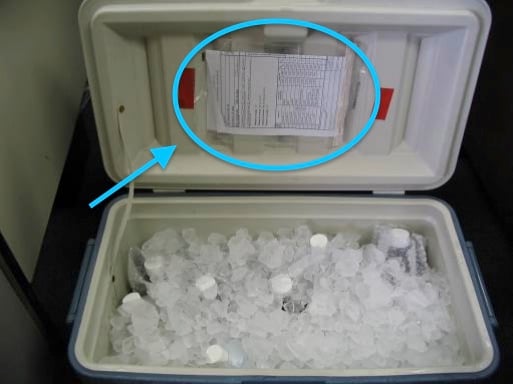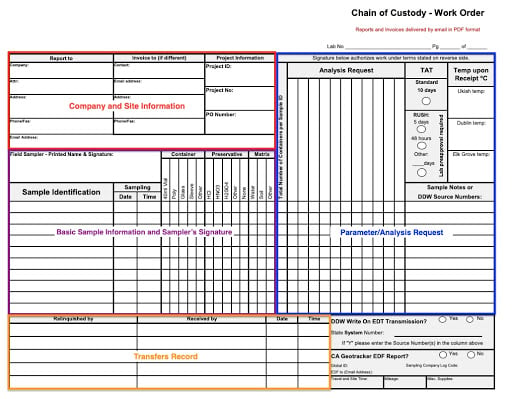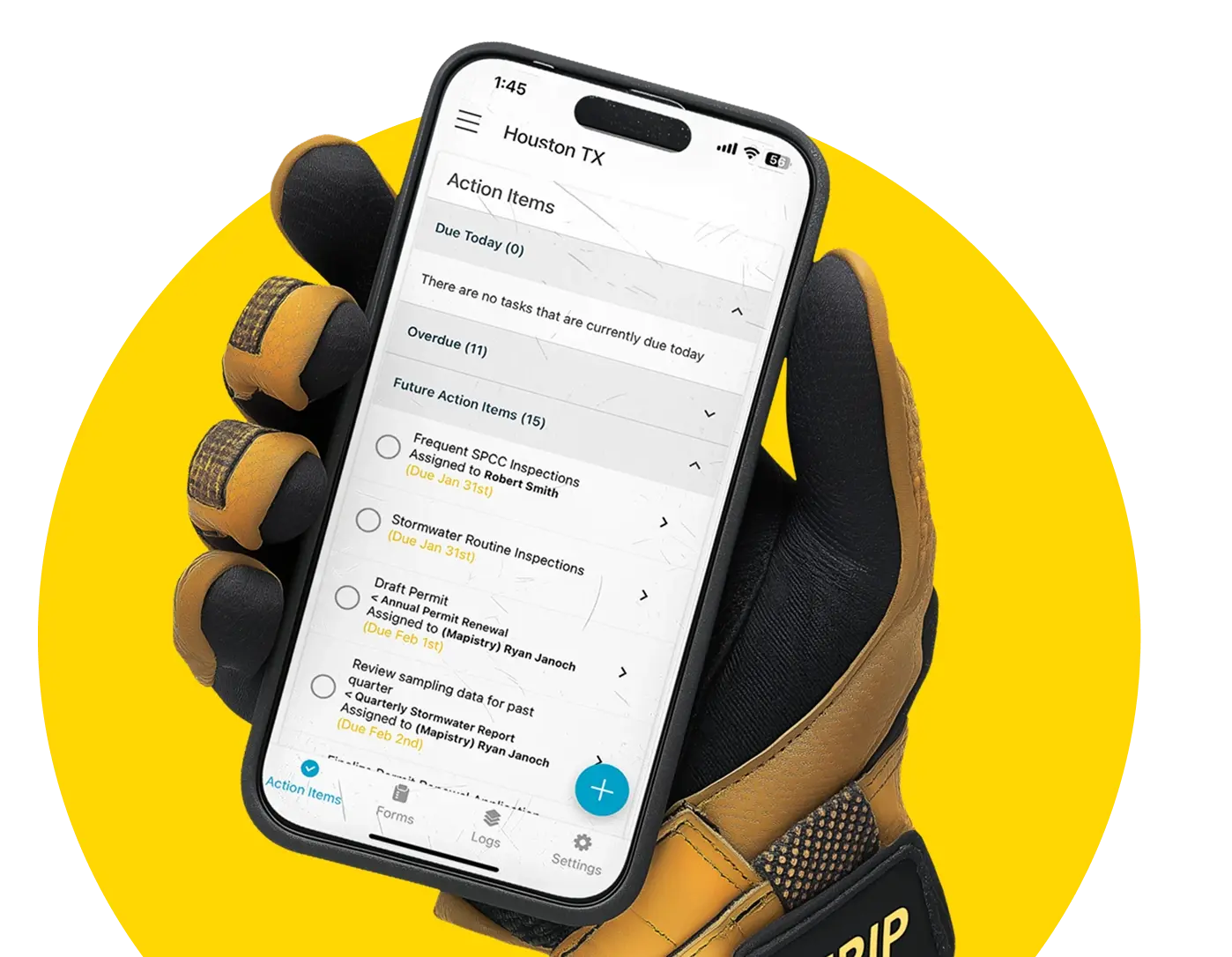What is a Stormwater Chain of Custody Form?
According to the EPA, a chain of custody (COC) form tracks the transfer of your stormwater samples from collection through analysis to ensure its integrity.
This means that every individual who handles the sample will record their name, signature, and the date and time the sample was placed in their custody. The COC form also informs the lab of important information, such as the parameters you would like to analyse and which company the samples are from. How many COC forms are to be filled out, and where are they to be placed? A COC form must be filled out for each cooler of samples sent to a lab. It should be placed inside a re-sealable plastic bag inside the corresponding cooler, similar to the one pictured below:  Photo from EPA 2009’s Sampling Guide
Photo from EPA 2009’s Sampling Guide
I know this may sound like a lot of responsibility, but if you are in charge of the samples and COC forms, don’t fret!

Simply follow these steps to know what you need to accomplish: 1. Properly label and store the samples
2. Record your company and site’s information including the name, address, and contact information on the COC.
3. Record each sample’s identification label (i.e. Sampling 4. Location 1) and make sure it matches the discharge point notated in your Stormwater Pollution Prevention Plan.
4. Record the exact date and time of retrieval of each sample and fill in the sample container’s information required by your lab (container type, preservative, and matrix)
5. Make sure the sampler signs the form.
6. Under “Analysis Request”, write each parameter you are required to test for. Each parameter should be written in a separate box. Then, place a check in each sample container’s row to request the parameter analysis for that sample. If you can have your lab pre-populate this par,t it is better for everyone so there are no errors or questions about what methods should be used.
7. Record a transfer of the sample by having both the relinquisher and receiver date and sign the COC form in the designated box.

8. Make a copy for your records and keep the original COC form with the samples. When the lab report is complete, the facility will provide a copy for its records.
You and your site staff work hard yearly to improve your BMPs, attend stormwater training, and perfect your sampling technique. So ,ensure the integrity of your samples by correctly filling out your COC forms and staying on top of your stormwater year! 



%201%20(2).png)
.png)
.svg)
